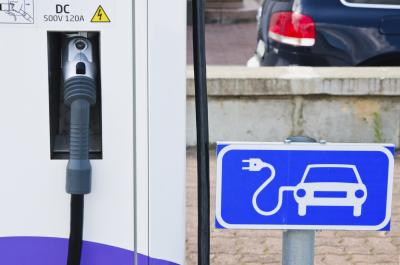
While they have a handful of practical drawbacks, one thing that is plain about the electric car is that it is cleaner in every way when compared to a conventional, gasoline-burning car. These cars are not only more efficient, but they also use fewer hazardous chemicals in their operation. This is true even when the electric car is recharged using power from fossil-fuel burning plants.
An electric car uses battery power to drive the motor, burns no gasoline or other fossil fuels and is therefore a zero carbon emissions vehicle in and of itself. Any emissions created are indirect, coming from the original source of the electricity.
Given that the batteries of an electric car are charged using the local power grid, electric cars are as clean as that grid. In theory, if the local power supply were drawn from a mix of hydro, wind, solar and nuclear power, operating electric cars would be both directly and indirectly a source of zero emissions.
Because even fossil fueled-fired power plants are more efficient than a car's internal combustion engine, the electric car is more energy efficient and produces less overall pollution. Even using electricity from coal, an electric car is 4 percent more efficient than a gasoline burning version of the same car.
While the batteries of both conventional and electric cars require eventual replacement, disposal of the lead-acid batteries used in conventional cars is much more hazardous to the environment that disposal of the lithium or nickel-based batteries of electric cars.
Electric cars also have a lower or no demand for many of the hazardous, polluting fluids used in a conventional car, such as motor oil and anti-freeze.